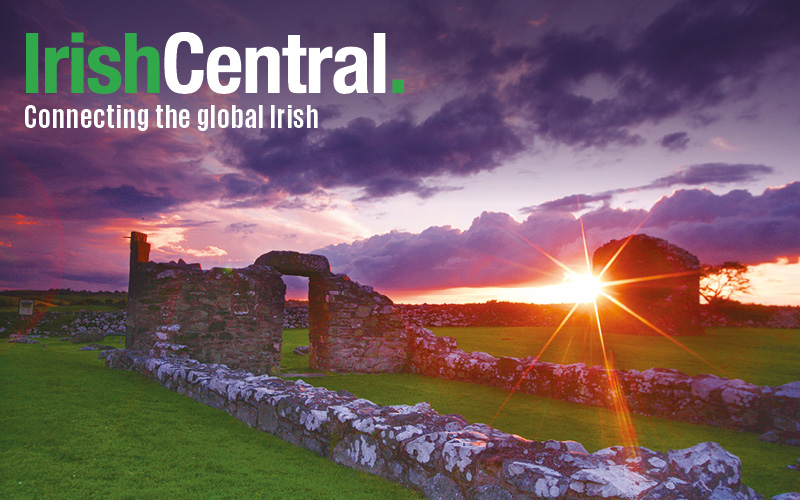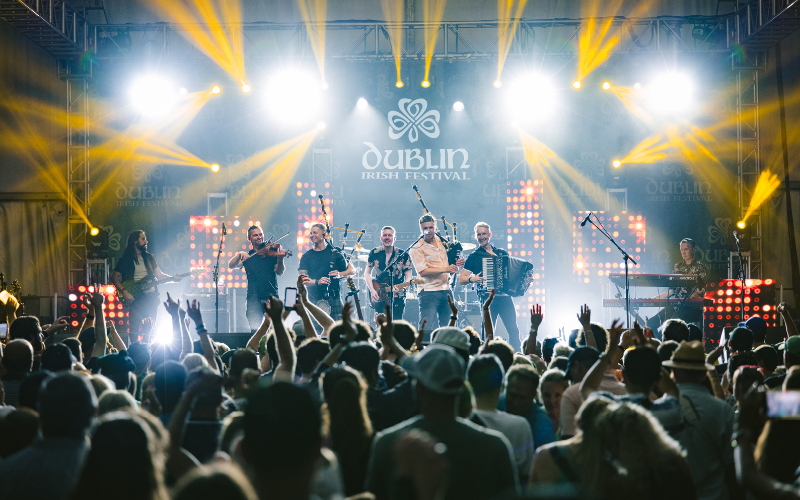In the midst of horribly stormy, turbulent weather both in Boston and in Ireland over the Christmas break, I spent a lot of time reflecting on the past eventful year in my life and on what the future might hold in store. In November of 2013, my wife, stepson and I, together with our families and friends on both sides of the Atlantic, celebrated the first birthday of my son, Lawrence Paul Donnelly IV, or Larry Óg (young Larry), as he is commonly referred to in Galway.
Parents everywhere know that nothing can prepare you for having a baby. In my case, as someone whose primary goal in life beforehand had been to avoid the unnecessary assumption of responsibility and who had almost no experience with babies, these have been a truly extraordinary 14 months.
I’ve become able to do things that I’d assumed were totally beyond me rather easily. I’ve felt a breadth of emotions, ranging from deep-seated frustration to exhilarating satisfaction with stops at all points in between. I’ve endured seemingly relentless and undeniably harsh criticism at times from my wife for my incompetence in matters paternal. I’ve slowly figured out that there is no point in trying to make plans or to live life by a schedule when one has a new baby. I’ve come to grips with the fact that I can’t do what I want, when I want anymore. In sum, I’ve learned, and will still be learning for years to come, how to be a father.
Fortunately for me, my brother and a few friends back in Boston, as well as here in Ireland, have also become fathers lately. While I was in Boston, I discussed the trials, tribulations, and triumphs of our new roles with them. It was very much a “mutual identification society.” Inevitably then, we began to discuss the future and our hopes that we would always be close friends, despite the ocean that divides us.
It was in sharing our hopes, however, that I probably selfishly realized that I would face a far different sort of challenge in raising young Larry than they would in bringing up their children. They live in familiar territory, in the same neighborhood (or very close by) just across Boston’s city line, where we were raised and where they have spent most of their lives. They know the streets, the schools, the sports, the customs, the lingo, and the people. Even though I have lived in Ireland for more than a decade and love this country every bit as much as I love the country of my birth, I didn’t grow up here. And that makes a difference.
As I thought about my own situation, it put me in mind of countless conversations I had heard growing up in Boston among Irish expatriates who had become or were about to become parents of American-born children. These often started in a teasing matter – “sure, your kids are going to have Yank accents” – but typically also dealt with the more serious issues of identity and upbringing.
The new or putative parents were forced to confront these issues. That process led them either to embrace the reality that their children would, in time, ensure that they themselves would become fully American, or to reject it and to return to Ireland. I know people who reached different decisions over the years and completely understand the various reasons why they did.
Regardless of which decision they arrived at, concerns of the heart and of the head were always to the fore. And I know that these concerns led to long-running arguments for some couples, especially if one was Irish and the other American. One way or another, somebody ultimately won, and part of the bargain was invariably the promise that they could cross the Atlantic together again if things didn’t work out.
Because I am very happy living in Ireland, I’ve never had such a discussion with my wife or step-son, though we would be open to returning to Boston (or two or three other American cities) someday. That said, I have recently been wrestling with several questions about our baby’s rapidly developing identity.
Will there be anything American – or far more importantly to me, Bostonian – about him? Will our childhoods and cultural frames of reference bear even the slightest resemblance? How will I help him with sports or with his Irish homework?
Notwithstanding our close roots in and demonstrated commitment to Ireland, am I in some way letting down my family and friends in Boston by bringing up a child that will be more Irish than American in every way?
These questions may seem overwrought to some. However, I suspect expatriate parents in the US, Ireland, and elsewhere will be intimately familiar with them. What I tried to convince myself over the Christmas break is to remain forever mindful of the simple truth that life is an unpredictable journey for us all. Yes, the contours of that journey are certainly shaped by the place(s) where we live.
But geography doesn’t define us or our offspring. Our lives are made special and worth enjoying to the fullest by those we share them with, most especially our children, to whom we owe our very best as long as we live. By birth, Larry Óg is Irish and American. I hope that, like his father, he’ll proudly identify himself as both and cherish two great countries. Yet what matters more than anything else is what kind of person he becomes. And there’s an amount of work in that for me, his mother and his older brother much greater than I ever could have imagined. One year of work done, many more to go.




Comments